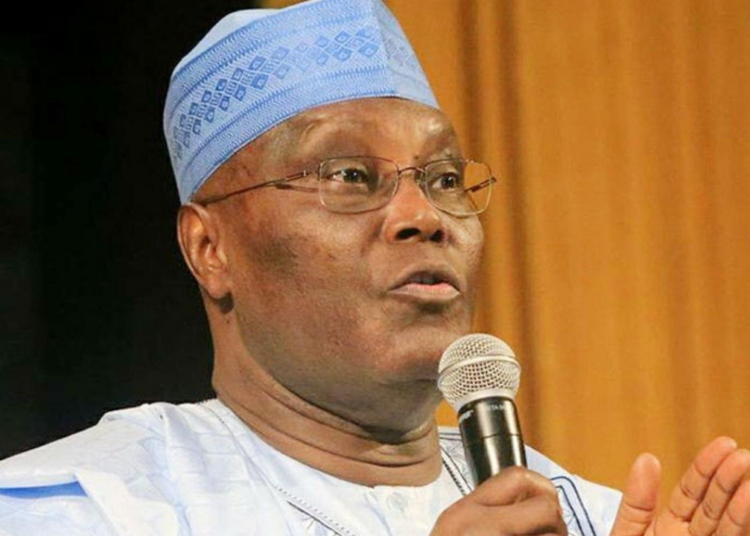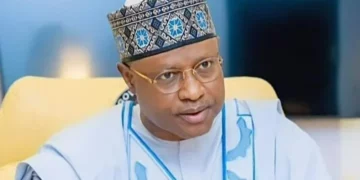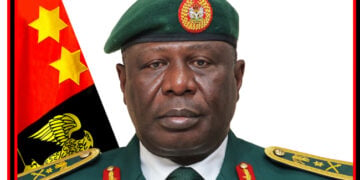Reactions have trailed President Bola Tinubu’s withdrawal of pardon for the convicted husband killer, Maryam Sanda, several drug barons, and others whose offences were deemed severe before sentencing.
The presidential pardon had earlier been extended to Maryam Sanda, the woman convicted of killing her husband, Bilyaminu Bello, in 2017. However, the Presidency has now approved a commutation of her death sentence to 12 years’ imprisonment on compassionate grounds.
Sanda’s name appeared in the Reduced Terms of Imprisonment and Sentence List released on Wednesday by the Attorney General of the Federation and Minister of Justice, Prince Lateef Fagbemi, SAN. This followed President Tinubu’s directive for a review of the earlier list of 175 persons granted clemency and pardon.
The Presidency confirmed that while Sanda’s initial pardon was revoked during the review process, her sentence was reduced from death by hanging to 12 years’ imprisonment — reflecting what officials described as a “balanced act of mercy and justice”.
According to the gazette, Sanda’s sentence was commuted “based on compassionate grounds, in the best interests of her children and good conduct, having embraced a new lifestyle as a model prisoner showing genuine remorse”.
The document, however, contained a typographical error, listing her name as “Maryam Sunda” instead of “Maryam Sanda”.
Sanda, who has spent six years and eight months in custody at the Suleja Medium Security Custodial Centre, was initially among the 175 convicts and former convicts granted various categories of pardon, clemency and commutation by President Tinubu, following approval by the National Council of State on 9 October 2025.
Her inclusion in the initial list, however, sparked public outrage, with the family of the late Bello and several human rights groups faulting the decision and calling on the President to uphold justice for victims of violent crimes.
Following the backlash, the Presidency directed a comprehensive review of the list to ensure that individuals convicted of serious crimes — including murder, drug trafficking, and kidnapping — were excluded from benefiting from the prerogative of mercy.
A statement by the Special Adviser to the President on Information and Strategy, Bayo Onanuga, explained that constitutional provisions and public interest guided the President’s action.
“The review became necessary in view of the seriousness and security implications of some of the offences, the need to be sensitive to the feelings of victims and society in general, and the need to boost the morale of law enforcement agencies,” Onanuga stated.
“Justice must be seen as a three-way traffic — for the accused, the victim, and the state.”
With the revision, Sanda’s clemency was downgraded to a sentence reduction rather than a full pardon.
Under the final approved instruments signed by President Tinubu on 21 October 2025, those convicted of serious offences were removed, while others had their sentences commuted or reduced. The Nigerian Correctional Service has been directed to implement the President’s signed orders accordingly.
President Tinubu also directed the relocation of the Secretariat of the Presidential Advisory Committee on Prerogative of Mercy from the Federal Ministry of Special Duties to the Federal Ministry of Justice.
The Attorney General was tasked with developing new guidelines for future clemency exercises, including mandatory consultation with prosecuting agencies.
The Presidency reaffirmed its commitment to fairness and judicial reform, stressing that future exercises of mercy will be guided by law, compassion, and public confidence.
“Mercy must never undermine justice,” President Tinubu said. “Our clemency process must reflect conscience and accountability.”
The President Has Powers to Grant Pardon and Review – Senior Lawyers
Senior lawyers in the country have said that the review of the clemency granted to inmates by President Bola Tinubu is within the powers conferred upon him by the 1999 Constitution of the Federal Republic of Nigeria.
According to them, the Constitution allows the President to grant and review pardons.
“The power to grant pardon by the President, and even to review, cannot be questioned,” they said.
Mr Mohammed Ndarani, SAN, stated that complaints about how the President exercises the powers conferred upon him by the 1999 Constitution regarding presidential pardons are not justified.
According to him, whatever the President does regarding the presidential pardon is within his discretion.
He said: “People are always complaining that the discretion President Bola Ahmed Tinubu exercised was not in line with the law, but in my opinion, these people are mistaken.
The complaints by some Nigerians are not justified because the 1999 Constitution is the grundnorm that binds us together. So, if the President invokes one of its provisions as bestowed upon him by law, how can anyone complain?”
Mr Abdul Balogun, SAN, said the initial presidential pardon and subsequent review were both in order.
He stated: “The President’s power to grant pardon or to review, if necessary, cannot be questioned. The initial pardon and the review are both within the President’s powers, which cannot be taken away from him unless through a constitutional amendment.”
Barrister Paul Omoluabi noted that the presidential prerogative of mercy in Nigeria is a constitutional provision that grants the President considerable discretion.
According to him, there are no constitutional provisions allowing for challenges to the exercise of this power.
Tinubu’s Government Thinks After Acting — Atiku
Former Vice President Atiku Abubakar has berated President Bola Tinubu’s administration for reviewing the clemency list following public condemnation, saying the government “thinks after it acts”.
The former Vice President, in a statement by his Senior Special Assistant on Public Communication, Phrank Shaibu, said Nigerians had witnessed a government that does not lead but reacts.
“President Bola Tinubu has cancelled his own pardon for drug traffickers, kidnappers, and other hardened criminals — but only after Nigerians shouted loud enough to wake him from his moral slumber.
Let’s be clear: this U-turn is not an act of wisdom; it’s an act of shame.
If the public had kept quiet, would convicted drug lords and kidnappers be walking free today under the President’s blessing? Who thought it was a brilliant idea to reward crime and betray justice? Who signed off on such a national embarrassment?
“These are the questions every Nigerian deserves answers to: Who compiled the list of beneficiaries? What criteria justified freeing kidnappers and drug offenders? Where was the Attorney General when this absurdity was conceived? And why does this government only discover its conscience after Nigerians express outrage?”
According to the former Vice President, this pattern has become too familiar — announcing the unthinkable, watching the country erupt, then hurriedly reverse course as if governance were a game of “trial and error.”
“A presidential pardon is not a social experiment. It is a sacred constitutional power meant to reflect justice, mercy, and national interest — not to reward impunity or test public patience.
How can a government that pardons criminals lecture citizens about morality, order, or discipline? How can a Commander-in-Chief who nearly freed kidnappers claim to be fighting insecurity? This entire episode exposes one bitter truth: Nigeria is being governed without foresight, without empathy, and without shame.
If the President truly means well, let him publish the list of all those who were meant to benefit from this scandal. Let Nigerians see the names, the crimes, and the hands that signed off on this reckless indulgence. Until then, this cancellation is nothing but damage control — too little, too late,” the statement added.





